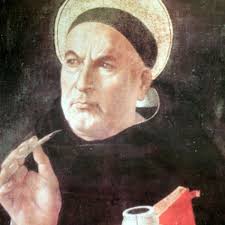 To John Middleton Murry
To John Middleton Murry
Hotel Bristol
Rome. December 8, 1927
You are easily victorious in your article “Concerning Intelligence” in The New Criterion; at least a person who said long ago that religion is poetry can’t help thinking so. But it seems to me that you aren’t just to St. Thomas. Words had a precise meaning in his mind; “faith” excludes “reason” because it is a name for the supplement, beyond proof, in which our sensations are bathed: Praestet fides supplementum Sensuum defectui.
Moreover, the whole world to him was like a children’s theatre, that could be delightfully pulled to pieces and put together again, not with a loss of illusion, but with a masterful knowledge of why and how the illusion came about, and was intended. The earthly and the heavenly, the rational and the miraculous made one tapestry: the distinctions were not arid, because they were internal to the work of God, and friendly.
From The Letters of George Santayana: Book Three, 1921-1927. Cambridge, MA: The MIT Press, 2002.
Location of manuscript: Collection of Richard A. Macksey, Baltimore MD.
